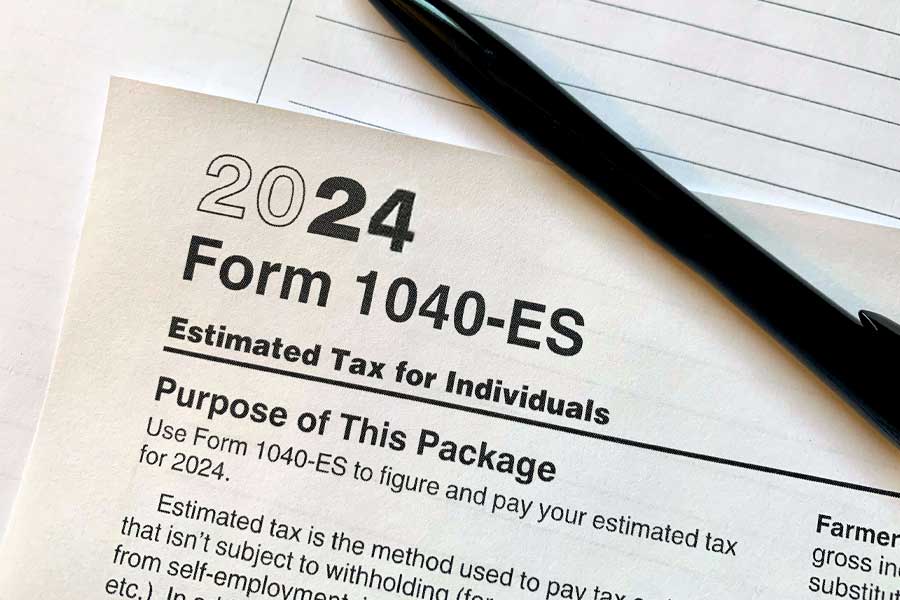Divorce introduces numerous changes, and understanding how it affects your taxes is crucial. As the 2025 tax season approaches, it’s essential to grasp the tax implications of your filing status, alimony, and child support, especially within Colorado’s legal framework. Here’s what you need to know to navigate your taxes effectively post-divorce.
Understanding Your Filing Status After Divorce
Understanding Your Filing Status After Divorce: Key Tax Considerations
Your marital status as of December 31, 2024, will determine your filing status for the 2025 tax year. If you are divorced or legally separated by that date, the IRS requires you to file your taxes as either:
Single
This status applies if you are not married and do not qualify for another filing status. It’s the most straightforward option, though it often comes with higher tax rates compared to other filing statuses.
Head of Household
If you are the primary caregiver for a qualifying dependent, such as a child who lived with you for more than half the year, you may qualify for this status. Filing as Head of Household offers several benefits over filing as Single, including:
- Lower tax rates
- A higher standard deduction
- Eligibility for various tax credits, such as the Child Tax Credit and the Earned Income Tax Credit (EITC).
To ensure you’re using the correct filing status, it’s helpful to consult the IRS Filing Status Tool or a tax professional.
Alimony and Taxes: Federal and Colorado Perspectives
The tax treatment of alimony (also called spousal maintenance) has undergone significant changes in recent years, shaped by both federal and state legislation. Understanding how these changes apply to your divorce settlement is crucial for proper tax planning.
Federal Level:
Since the enactment of the Tax Cuts and Jobs Act of 2017, alimony payments made after January 1, 2019, are no longer deductible by the payer. Likewise, recipients of alimony no longer report it as taxable income. This shift applies to divorce agreements finalized after this date and alters the financial landscape for individuals receiving or paying alimony.
Colorado Specifics:
Colorado has aligned with the federal tax law changes. As of 2019, alimony payments in Colorado are neither deductible for the payer nor taxable for the recipient. This consistency between state and federal law streamlines the tax treatment of maintenance payments and helps avoid confusion.
Child Support and Dependency Claims in Colorado
Child support carries specific tax implications that differ from alimony. Understanding these differences is key to ensuring proper tax reporting.
Tax Treatment:
Child support is not taxable for the recipient nor deductible for the payer at both the federal and state levels. Unlike alimony, there are no tax benefits associated with paying or receiving child support.
Dependency Claims:
Generally, the parent with whom the child resides for the majority of the year (the custodial parent) claims the child as a dependent. This can affect eligibility for valuable tax benefits such as:
- Child Tax Credit: A credit of up to $2,000 per qualifying child.
- Earned Income Tax Credit (EITC): A refundable credit for low to moderate-income earners.
However, in some cases, the custodial parent may choose to transfer the dependency claim to the noncustodial parent by signing IRS Form 8332. This form grants the noncustodial parent the right to claim the child as a dependent for tax purposes, which could benefit the family’s overall tax situation.
Property Division and Tax Considerations
The division of property in a divorce can have significant tax consequences, even if no money changes hands. The IRS generally does not treat the transfer of property between spouses as a taxable event, but future tax obligations remain.
Asset Transfers:
While transferring assets during a divorce is not taxable, the recipient spouse will assume responsibility for any future taxes related to those assets. For example, if one spouse receives an investment account with appreciated stock, they will be responsible for capital gains taxes when the stock is sold.
Retirement Accounts:
Retirement accounts, such as 401(k)s or IRAs, often require special attention during divorce proceedings. To avoid taxes and penalties on early withdrawals, a Qualified Domestic Relations Order (QDRO) may be necessary to facilitate the tax-free transfer of retirement funds from one spouse’s account to the other.
Key Takeaways & Next Steps
Navigating divorce and taxes can be complex, but understanding key concepts can help you make informed decisions for your financial future. Here are some essential points to remember:
- Check your filing status: Be sure to determine whether you need to file as Single or Head of Household based on your living situation as of December 31, 2024.
- Understand alimony tax rules: Recognize that alimony payments are no longer deductible by the payer or taxable for the recipient under federal and Colorado laws.
- Know child support rules: Child support is neither taxable nor deductible, but the custodial parent usually claims the child as a dependent, which impacts eligibility for tax credits.
- Be aware of property division taxes: While asset transfers during divorce are generally not taxable, future capital gains taxes or other liabilities could apply based on the assets received.
Seek Professional Advice: Because divorce and taxes intersect in complex ways, it’s essential to consult with a tax professional or divorce attorney. They can help you understand how to optimize your tax situation and ensure you’re in compliance with both federal and state regulations.
If you’re unsure about how your divorce will affect your taxes, the experienced legal team at Boal Law Firm is ready to guide you through the process. Contact us today to schedule a consultation and make sure you’re on the right track for the 2025 tax season.

